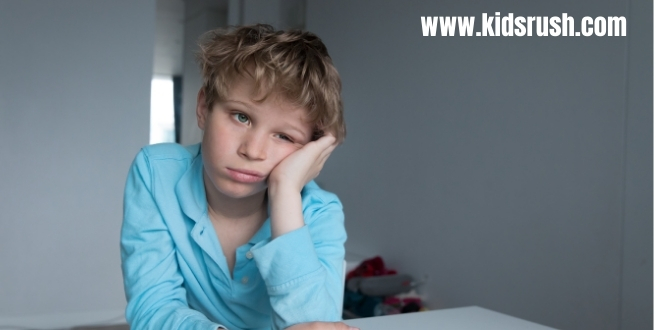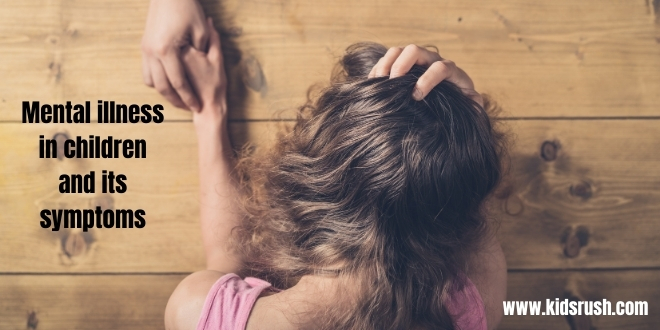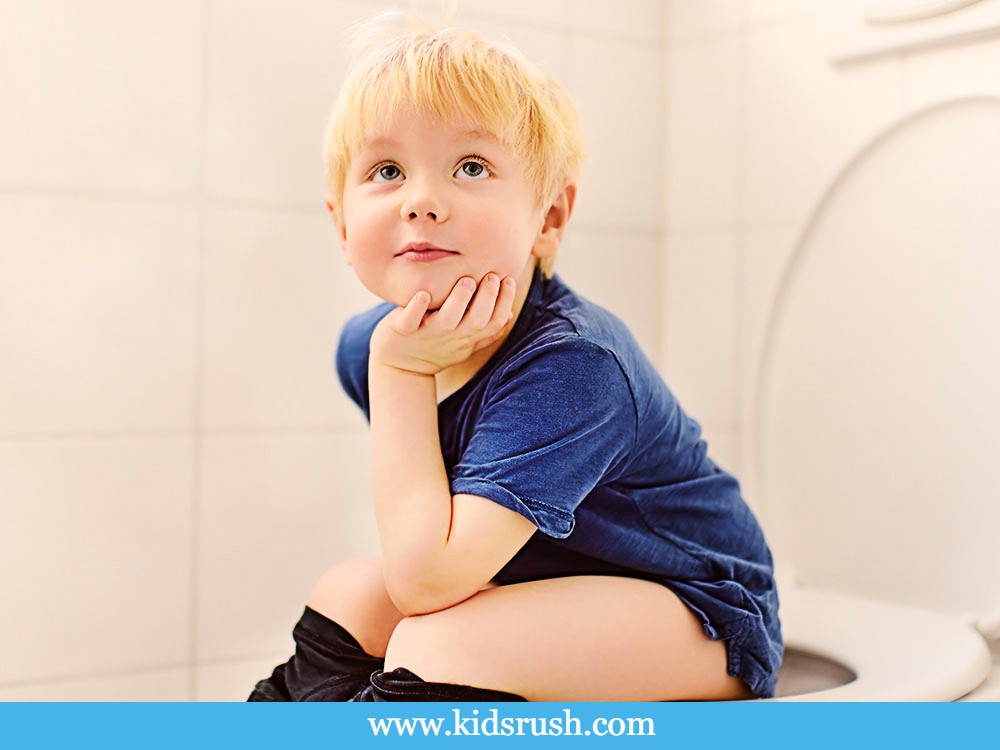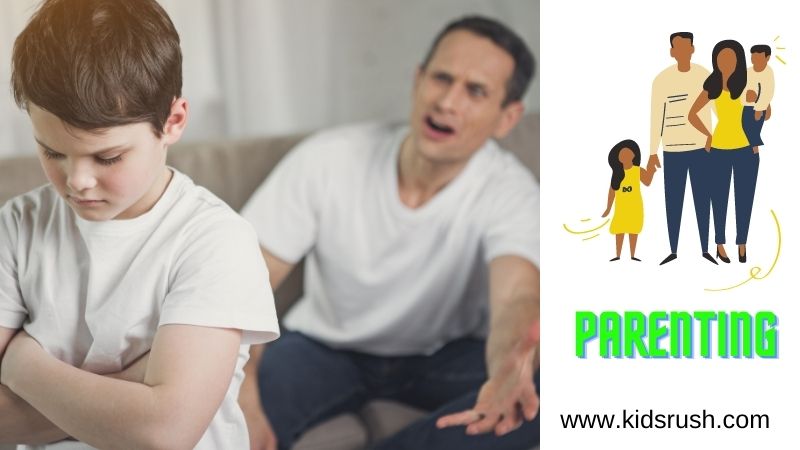Mental illness in children and its symptoms:
The symptoms of mental illness in children are not easy to recognize. Sometimes we even think that these behaviors are temporary or just something the child does on purpose. If you have any questions, always talk to a therapist.
Mental illness is found not only in adults but also in children. However, the symptoms may be different in children, and therefore it is important to know them.
Today we have compiled some information so that you can learn more about the subject of mental illness in children. Read on so you can identify the symptoms yourself.
Read Also: How to cure whooping cough in children |Remedies|
What you should know about mental illness in children

Detecting mental illness in adults is relatively straightforward, but we can not say the same about children. Children show symptoms that often go unnoticed by adults in the environment.
This leads to a loss of valuable time before starting treatment. Add to that the fact that children are still building their vocabulary and the ability to convey the symptoms becomes even more difficult.
The adults who care for them must therefore know how mental illness manifests itself in children so that they can detect it and contact the care as soon as possible.
Below we will tell you in detail what the most common mental illnesses in children are and what their symptoms are.
Read Also: The best vegetables for kids
The most common mental illnesses in children

Children can suffer from the same diseases as adults, but some are more common than others, such as:
- Anxiety disorders such as obsessive-compulsive disorder, social phobia, generalized anxiety disorder, and selective dumbness, among others.
- Lack of attention and hyperactivity.
- Autism.
- Eating disorders such as anorexia and bulimia.
- Mood disorders such as depression, bipolar disorder, etc.
- Schizophrenia, which usually manifests itself in late adolescence.
The symptoms or signs of mental illness in children
As we explained above, mental illness can often go unnoticed by parents. One might think that the initial symptoms or signs are normal and only part of the normal behavior of children.
However, if a specific sign is present over a long period or becomes more intense, seek the help of a therapist. It can be an indicator that your child needs extra help.
Parents often lack sufficient information to detect these symptoms and therefore do not seek help. Unfortunately, most of us are influenced by the negativity and stigma surrounding mental illness.
With that said, the first step is to leave taboos and preconceived notions behind. In this way, you can inspire the child’s self-confidence and help end this social stigma.
So what symptoms should one lookout for?
Changes in behavior
Be aware of drastic and radical changes in your child’s behavior. For example, it may begin to act irritably or violently or adopt dangerous or aggressive behavior. It can also start to threaten or quarrel constantly.
What to look for is unusual or disproportionate irritability and aggression. These may indicate the existence of some form of mental illness.
Look at any significant changes in your child’s behavior as a warning sign, especially if they are intense or last for a long time.
Read Also: Solidarity: Educate children in values
Sadness

When we say “keep an eye out for symptoms”, we mean changes that affect the child’s daily life.
Therefore, pay special attention to sadness that lasts for more than two weeks or that the child seems isolated and self-absorbed (remember, however, that some children are more introverted than others).
Notice new behaviors that prevent them from doing things they used to like or if it affects their performance at school. If this is the case, it can e.g. are about childhood depression.
Difficulty concentrating
It is normal for children to have some difficulty concentrating, especially if they sit for long periods in the classroom.
However, if this difficulty is disproportionate to other children or if it affects at least two areas of life, it may be a symptom of mental illness.
Pay special attention to symptoms such as memory loss or changes in the child’s ability to think clearly.
Major weight loss
Also pay attention to heavyweight loss, vomiting, or loss of appetite as it may indicate an eating disorder.
It is important to be on your guard and seek help quickly in these cases so that treatment can begin. Anorexia and bulimia can lead to serious consequences if left untreated.
Mental illness in children can manifest itself through self-harm
In many cases, mental illness in children can lead to self-harming behavior. Therefore, you need to pay close attention to any injuries your child receives.
If you notice this symptom, you must seek immediate help. Many children with mental illness suffer from suicidal ideation, and it is important to get help as early as possible.
Be aware of noticeable changes in your children’s behaviors. Be aware that self-harm, suicidal thoughts, and difficulty concentrating are clear signs that therapeutic help is needed.
Intense emotions
It is normal for children and adolescents to experience intense emotions. But if there is no basis for it – for example, if the child has an excessive, powerful and irrational fear of something – then the phobia can be a sign of illness.
Here we talk about phobias and fears that interfere with the child’s daily activities.
Headache and stomach pain
Adults tend to show symptoms such as anxiety and sadness, but children can express mental illness in other ways. For example, unusual or cash headaches or stomach pain may be a symptom of anxiety or worry.
In the same way, you need to be aware of sleep disorders that have no explanation. The first step is to rule out physical problems that can cause pain or difficulty sleeping.
Substance abuse
It is for this reason that you need to be aware of the signs of substance abuse.
Perceptual changes
The child can claim to see or hear people and things that do not exist. However, be very careful with this, because as you probably know, children’s imagination knows no bounds.
If this symptom persists for many years and up into adolescence or if it affects the child’s quality of life, seek help.
Difficulties in socializing
Many children are shy, and that is perfectly normal. However, extreme withdrawal can be caused by a mental illness that prevents them from interacting with the environment.
Also, pay attention to difficulties in relating to others or if they refuse to have contact with other children or people. This can be a sign of anxiety disorders or social phobia.
What to do if you discover mental illness in children?
Psychological help is the key to dealing with mental illness in children. Therefore, it is important to seek help after discovering these symptoms.
It is important to evaluate the strength and duration of the signs in question and then talk to a doctor. You can also talk to the child’s teacher because he or she can tell you how the child is behaving at school.
If a diagnosis is confirmed, effective psychological treatment can be started. Of course, you must always give unconditional support and love so that the child knows that it is not alone, that the discomfort has a solution, and that you will always be there.


